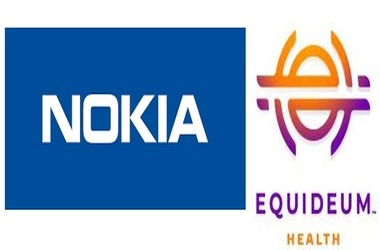
“From a life sciences standpoint, they’d prefer to have access to that information,” opined Jeffery Smith, a Gartner research director specializing in pharmaceutical R&D. Patients who provide their info will be compensated with stablecoin, a cryptocurrency backed by dollars, via Eqideim’s Ethereum blockchain network.
Several pharma and life sciences research organizations now develop their in-house patient health records databases by contacting patients, healthcare providers, or insurers directly, according to Smith. The majority of patient information originates through insurance claims or straight from patients who provide their agreement for it to be used by their healthcare professionals.
Permission, on the other hand, is often an all-or-nothing proposition. Patient information is also “tokenized” or anonymized, making it cumbersome to link it to the patient who submitted it and allowing it to comply with HIPPA privacy requirements.
Equidium Health’s SaaS solution is unique in that it allows patients who provide data to define precise rights and a temporal restriction on how much time the data may be utilized, according to Smith.
“By comparison, many patients accept to sweeping permit,” said Sean Manion, Equideum Health’s chief scientific officer. “You’ll frequently be told to provide a one-time authorization that encompasses everything your health care system wants to carry out with it after it’s de-identified.”
For research firms, data providers, or corporations that collect patient healthcare data from numerous sources, serve as a middleman. The patient information is pooled by intermediates, rendering it more lucrative for research. In other terms, as per Smith, the more information they can accumulate, the more analytically useful it is.
Life sciences firms utilize healthcare data for a variety of purposes, including medication research and development, clinical study planning, targeted therapy, and hazard evaluation. There is indeed a multibillion-dollar business that gathers healthcare data, bits it of fundamental personal identifiers like name, address, and SSN, and then distributes it to academics, medication researchers, marketers, and many others.
Medical informatics businesses like Iqvia (IMS Health), Optum, and Symphony Health earn from selling information, but the patients who provide it have little say in how it is utilized.
They also do not get any remuneration for it. This isn’t the initial time a blockchain system has been exploited to trade patient information. Hu-manity.co teamed with IBM four years back to build a digital ledger that offers users the cryptographic key to authorize access to the private information, enabling patients or others to govern the precise goal for which it is used, as well as profiting from it in the future.
As per IDC, blockchain’s connectivity could bolster data exchange, acting as a replacement for today’s health information exchanges (HIEs). It would basically act as a mesh system for transferring safe, near instantaneous real-time patient records for healthcare providers, drug stores, insurance payers, and research institutes. Equideum uses Ethereum blockchain with a Web3-based platform. Web3 is the latest version of the World Wide Web centered on peer-to-peer network, or “decentralization,” and token-based activities, as contrast to Web 2.0, which is characterized by centralized data hosting facilities.
“In a blog post, Gartner Distinguished Analyst Avivah Litan said, “Users own their own information, identity, material, and algorithms, and can control the blockchain protocols they utilize by owning governance tokens.” By possessing the protocols’ tokens or cryptos, users become ‘shareholders.’
In addition, Web3 takes control and money away from centralized Web 2.0 “gatekeepers” like Google and Facebook. “Web3, for example, disrupts gatekeepers’ targeted-advertising businesses by transferring ownership of required consumer data from gatekeepers to consumers,” she said. Equideum’s healthcare and research networks are dubbed “Data Integrity and Learning Networks” by the company (DILNs). Self-sovereign identification, fine-grained verifiable consents, and privacy constraints are all features of DILNs, which apply to both corporate and individual data silos.
Offering patient data to other parties might have serious cybersecurity concerns. To that aim, Equideum Health is not storing the data in a traditional data warehouse. According to Heather Flannery, founder and CEO of Equideum, a patient’s information is saved independently from that of others on a peer-to-peer decentralized network, so if hacked, a bad actor would only have access to one data store.
Equideum Health (previously ConsenSys Health) will use technology stacks from current ConsenSys partners to build up the Decentralized Equideum Exchange, including Intel’s Xeon Ice Lake CPUs with SGX security capabilities and Microsoft Azure. Equideum’s SaaS service will serve as a data source for research firms conducting clinical trials. Those companies must match patient data to their research, and a decentralized network assures that they aren’t pigeonholed inside a single data bank that is restricted by payer/provider data participants.
“Companies already spend a large amount of money and effort in data collecting to select patients for clinical studies, and they face difficulties such as poor data accuracy, regulation, and the expense of middlemen.” Nokia said in a media release.
Nokia NDM will power the Decentralized Equideum Exchange, which will operate on an Ethereum network with public permissions. Akin to decentralized finance (DeFi) networks, the blockchain digital ledger offers self-sovereign information and identification functions.
Equideum Health’s SaaS platform enables a multi-party environment in which the data marketplace may use blockchain, decentralized AI, and privacy-preserving technologies to safely process, enhance, compile, and analyze data before securely exchanging it. Pharmaceutical companies can use Equideum Health’s Clinical Trials Matching capability to improve the clinical trial lifecycle by identifying patients faster, using advanced patient consent mechanisms, remunerating patients with digital wallets, and increasing patient openness on how information is used.
Patients will still be able to trade their data in a variety of ways. If the healthcare insurer or healthcare provider is a participant of one of Equideum Health’s current data integrity and learning networks (DILNs), they will be able to offer their members consent methods.
Manion said “There is also our direct-to-consumer application, where patients can understand about us in a variety of ways and sign up for our services right away.”